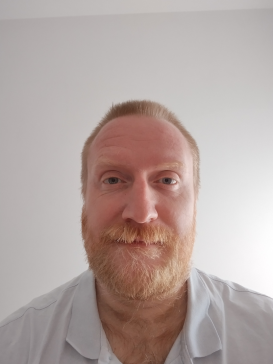
Nicholas Binney
Affiliated Scholar (Sep 2021-Sep 2024)
Dr.
Nicholas Binney studied philosophy at the University of Exeter, obtaining his doctoral degree in 2017 with a thesis on the historical contingency of medical knowledge. He previously qualified as a veterinary surgeon at the Royal Veterinary College London in 2006, practicing in the UK and the U.S.A.. He is currently a postdoctoral researcher at the Erasmus Medical Center, Rotterdam, working on a project exploring “Pragmatic Concepts of Health and Disease”. This project seeks to understand shifting concepts of health and disease encountered in the new millennium, and to develop a pragmatic framework for selecting suitable concepts for use in different medical contexts. Nicholas published many papers in the philosophy of medicine, focusing on the contingency and objectivity of concepts of disease, and on the evaluation of diagnostic practices. He has published papers on the history of sensitivity and specificity in Annals of Internal Medicine, and on how Meno’s paradox manifests in medical practice, when trying to empirically discover the diagnostic tests that are the most accurate of all, in Synthese. Nicholas has designed and taught courses on critical thinking and the philosophy of medicine at the University of Exeter Medical School, at the University of Oxford, and at the Erasmus University Rotterdam.
Projekte
The Evaluation of Diagnostic Tests over the Twentieth Century
Selected Publications
Binney, Nicholas (2021). “On the Origin of Sensitivity and Specificity.” Annals of Internal Medicine 174 (3): 401–407. https://doi.org/10.7326/M20-5028.
Read More
Binney, Nicholas (2021). “Using Medical History to StudyDisease Concepts in the Present: Lessons from Georges Canguilhem.” Teorema 40 (1): 67–89.
Read More
Binney, Nicholas (2019). “Meno’s Paradox and Medicine.” Synthese 196 (10): 4253–4278. https://doi.org/10.1007/s11229-017-1654-y.
Read More
Binney, Nicholas (2018). “The Function of the Heart Is Not Obvious.” Studies in History and Philosophy of Science. Part C, Studies in History and Philosophy of Biological and Biomedical Sciences 68/69: 56–69. https://doi.org/10.1016/j.shpsc.2018.05.002.
Read More
Binney, Nicholas (2015). “Nosology, Ontology and Promiscuous Realism.” Journal of Evaluation in Clinical Practice 21 (3): 391–397. https://doi.org/10.1111/jep.12274.
Read More
Presentations, Talks, & Teaching Activities
International Philosophy of Medicine Roundtable, Michigan State University, hosting remotely
TT21 Graduate School Training, Department of Continuing Education, University of Oxford
Medicine Double Degree With Philosophy (Ba), Erasmus University, Rotterdam
University of Calgary, Annual conference of the Canadian Society for the History and Philosophy of Science. Presentation given as part of a panel ‘Disease and disease concepts in history’.
Medical Humanities Student Selected Unit, University of Exeter Medical School
